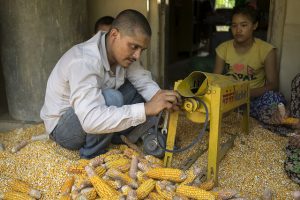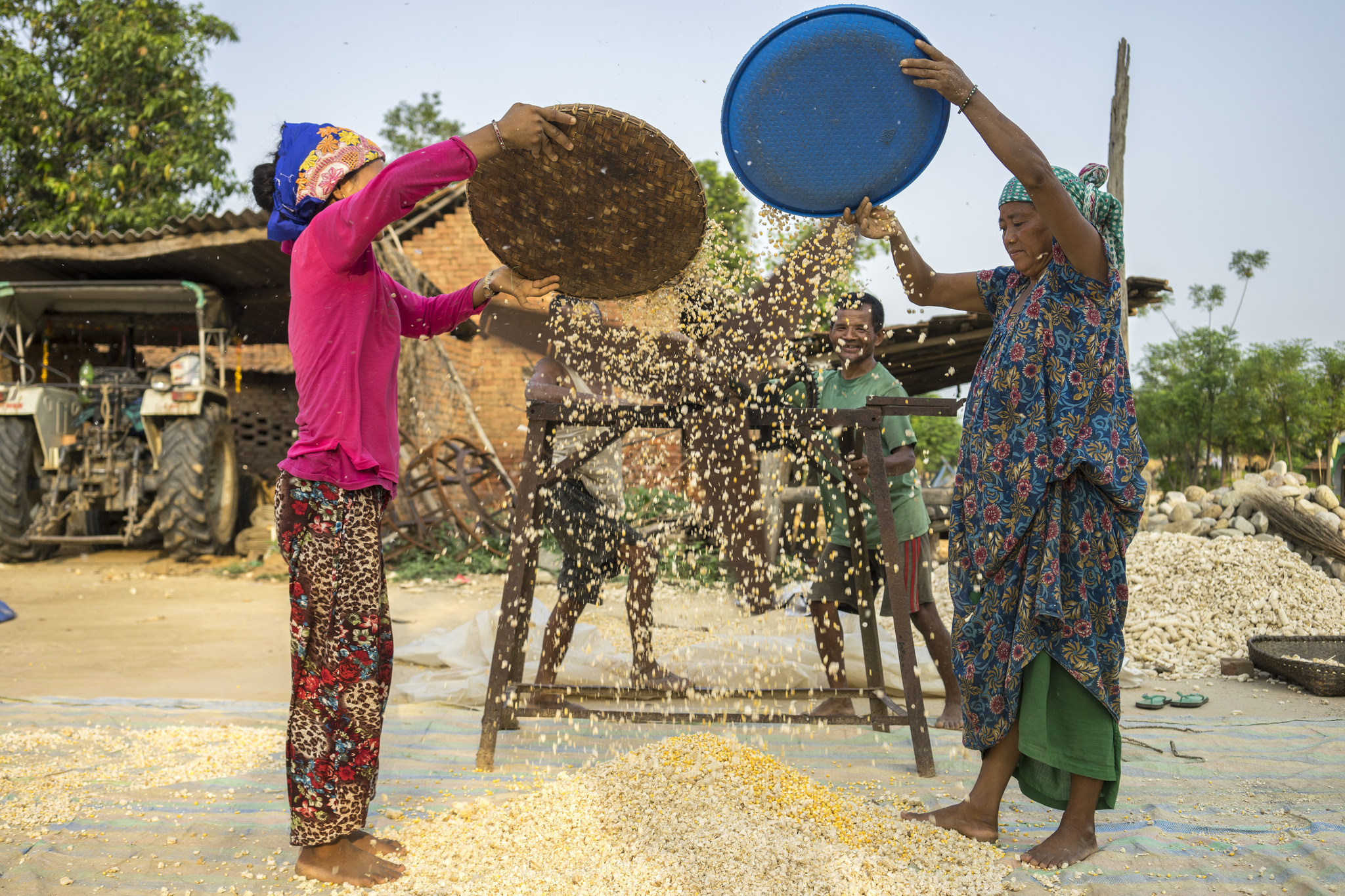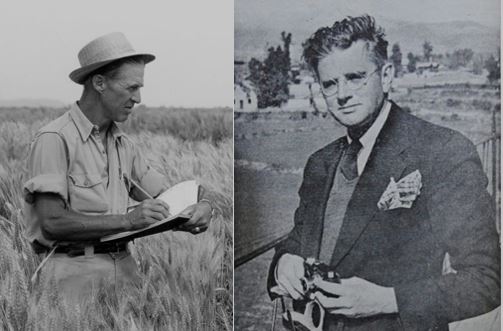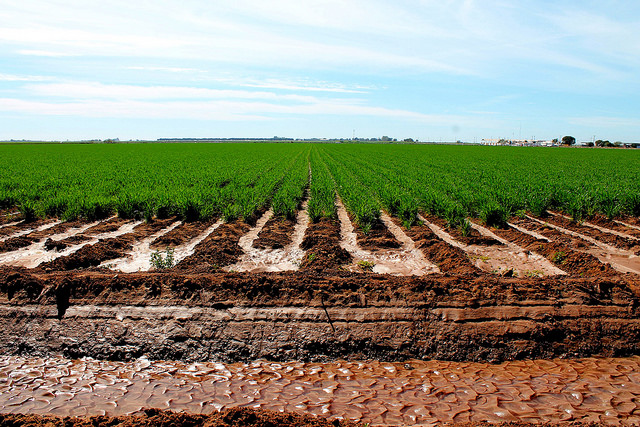
EL BATAN, Mexico (CIMMYT) – Agricultural innovations, like climate-resilient crops, sustainable land use practices and farm mechanization options, can go a long way toward achieving several U.N. Sustainable Development Goals.
But ensuring research reaches a significant amount of farmers to have widespread impact is challenging.
Projects, programs and policies can often be like small pebbles thrown into a big pond. They are limited in scope, time bound and therefore might fail to have long lasting impact. Through well thought scaling up strategies, development practitioners expect to implement successful interventions and expand, adapt and sustain them in different ways over time for greater developmental impact.
“To have our knowledge and technologies positively impact the livelihoods of large numbers of farmers in maize and wheat based systems is what matters most,” said Bruno Gérard, director of the Sustainable Intensification Program at the International Maize and Wheat Improvement Center (CIMMYT).
Understanding the needs and demands of our stakeholders is crucial in the design and implementation of a research portfolio, he added.
As part of a German Development Cooperation (GIZ) effort to aid the scaling up of agricultural innovations, Lennart Woltering recently joined CIMMYT’s Sustainable Intensification Program. With previous experience working in development in Africa and South Asia, Woltering will play a key role in linking CIMMYT’s research to specific development needs, increasing its relevance and impact.
There is no blue-print for scaling, it depends on the institutional and socio-economic environments, which are very diverse in the various regions where CIMMYT works, said Gérard. He hopes Woltering’s experience with both development and research organizations will further contribute to link the right technical innovations with the people who need them.
Bringing a scaling perspective to research projects as early as possible helps keep a focus on what the project actually can and aims to achieve, Woltering said. Understanding what the drivers are that make widespread adoption happen is critical.
“We do this by making sure scaling processes are an integral part of innovation systems. It is important to understand how conducive environments for scaling can be facilitated and how far we can realistically go,” he added.
Woltering will work to provide a coherent approach to scaling that can be used across the program’s projects, said Gérard.
To see real impact from research, initiatives must move beyond the boundaries of a single organization, Woltering said. New forms of collaboration across different sectors and the opening of new communication channels to share lessons of success when scaling should emerge.
Woltering will develop scaling strategies to facilitate the adoption of sustainable intensification options such as conservation agriculture and water/nutrient efficient practices, and contribute to enhance CIMMYT’s partnerships with public and private sectors.
Previously, Woltering worked as a civil engineer focusing on water management with the International Crops Research Institute for the Semi-Arid Tropics in Africa (ICRISAT), then later moved on to work for a consulting development firm in Germany. His experience will allow him to better articulate development needs with CIMMYT’s research, increasing the relevance and impact of the organization’s work.
Woltering is one of five experts working at CIMMYT as part of the GIZ sponsored CIM Integrated Experts program. The CIM program aims to strategically place managers and technical experts in public and private organizations in the developing world to pass on their professional knowledge and contribute to capacity building.

 Innovations
Innovations 
